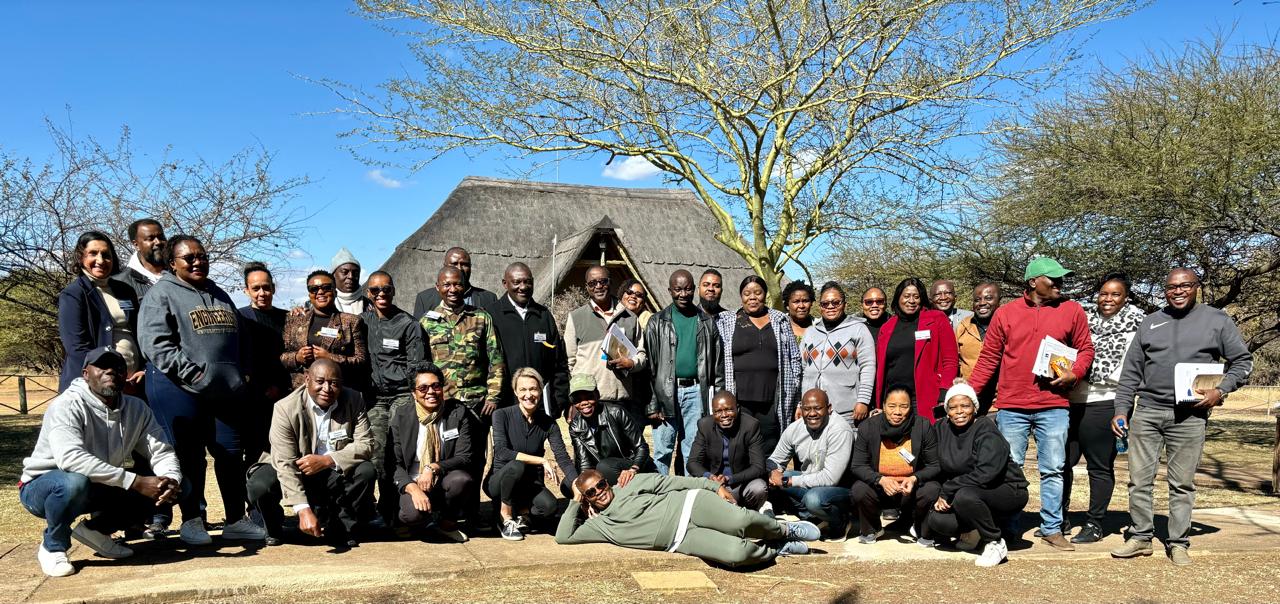Immigration officials from 11 SADC countries complete tourism-focused customer service training

Over 40 immigration and border control officials from 11 Southern African Development Community (SADC) member states have received advanced customer service training to improve the experience of tourists visiting Southern Africa.
In a significant move to enhance tourism services across the SADC region, a pioneering Train the Trainer Tourism Customer Service Workshop was recently conducted. This initiative, a key component of the SADC Tourism Programme 2020-2030, focuses on equipping border officials with crucial customer service skills to create a more welcoming and efficient experience for travellers, thereby bolstering the tourism sector across SADC member states.
The workshop emerged from a collaborative effort led by the SADC Business Council Tourism Alliance and the SADC Secretariat, working in tandem with the Joint Action NaturAfrica / Climate Resilience and Natural Resource Management (C-NRM) Programme.
This programme, a partnership between SADC, the European Union, and Germany’s Federal Ministry for Economic Cooperation and Development (BMZ), underscores the region’s commitment to improving tourism infrastructure and service quality.
As a major driver of economic growth in the region, tourism is a key industry of focus for SADC and consequently several initiatives are outlined in the SADC Tourism Programme to enhance the experience of visiting tourists, such as improved and aligned visa regimes, improved air access and capacity building at touch points that tourists encounter along their journey.
“Recognising the vital role of border personnel in shaping first impressions for visitors, the Train the Trainer Tourism Customer Service Workshop was the first step in creating coursework and training senior border management officials to improve interactions with tourists and facilitate better communication,” says SADC Secretariat Senior Programme Officer – Tourism, Moreri Mabote.
Participating countries were Botswana, Eswatini, Lesotho, Madagascar, Malawi, Mauritius, Namibia, Seychelles, South Africa, Tanzania, Zambia and Zimbabwe, with attendees convening at the Mangwa Valley Game Lodge in the Dinokeng Game Reserve, Gauteng, to gain first-hand knowledge of how tourism has transformed the previously agricultural area.
The coursework covered critical topics such as the economic importance of tourism, principles of customer service, effective communication techniques, cultural sensitivity, problem-solving, and creating customer service action plans. The interactive programme also offered a game reserve immersion and incorporated experiential activities such as game drives to provide a holistic context of the tourism industry and build camaraderie among participants.
The SADC Business Council Tourism Alliance is a public-private partnership dedicated to boosting the region’s competitiveness and contribution to social and economic development by building skills, improving accessibility, raising destination visibility, sharing best practices and promoting policy reforms that expand regional tourism.
Says SADC Business Council Tourism Alliance Project Lead, Natalia Rosa: “This training directly supports the SADC Tourism Programme’s goal of improving immigration facilitation to boost regional tourism growth and economic development. Border officials are the first and last point of contact for visitors. Empowering them with customer service skills will significantly elevate tourists’ perceptions of our destinations and encourage increased visits.”
Rosa continues: “Streamlined, welcoming border procedures are essential for realising the immense potential of tourism to drive job creation and prosperity across the SADC region. We’re proud to see officials collaborating to implement international best practices in efficiently and courteously welcoming tourists.”
In feedback received after the workshop, participants agreed on the value and knowledge gained from the workshop, saying it helped them reflect on their significant role as immigration officers in shaping the tourism industry.
The Train the Trainer model creates further impact by enabling these participants to cascade the training to their colleagues at border posts throughout the 11 participating countries. They will also remain engaged through feedback surveys and an online discussion portal to share successes, challenges and suggestions. Ongoing monitoring will track improvements in tourist satisfaction and border efficiency.